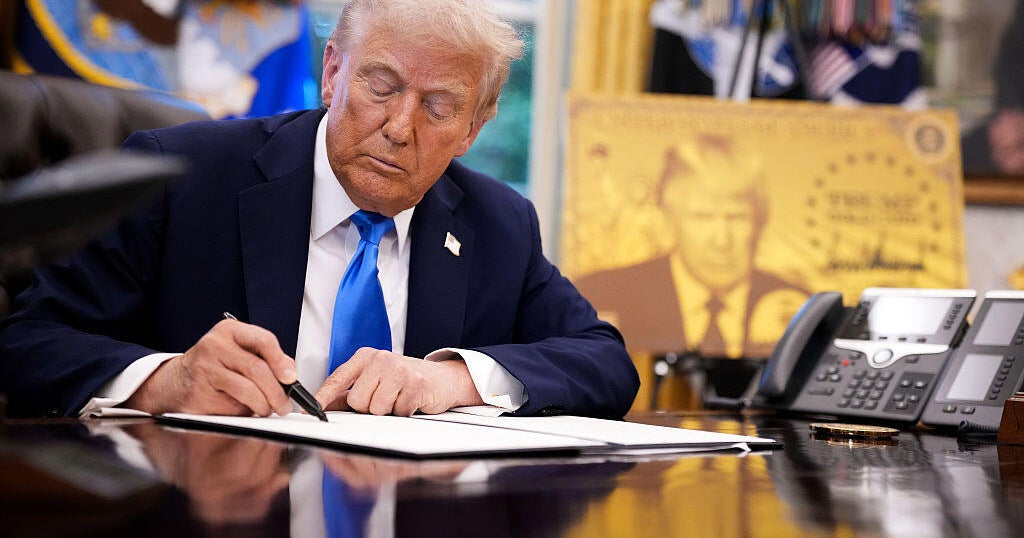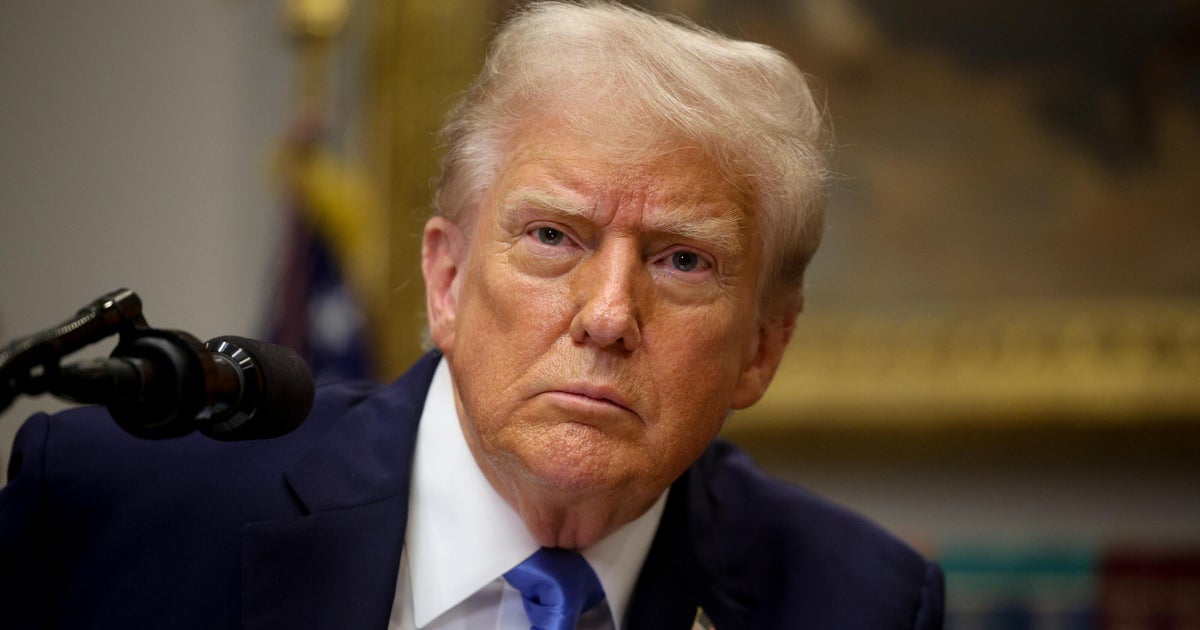
Washington — In a significant move that could reshape the landscape of social media in the United States, President Trump signed an executive order on Thursday aimed at allowing TikTok to continue its operations under a new corporate structure, effectively sidestepping a potential ban. The order comes as part of a broader agreement orchestrated by the Trump administration, designed to address ongoing national security concerns linked to the app’s Chinese ownership.
“This executive order will activate the agreement that preserves TikTok and ensures it operates safely and securely in the U.S.,” stated Will Scharf, White House staff secretary, during a signing ceremony in the Oval Office.
The executive order seeks to establish that the proposed deal constitutes a “qualified divestiture.” This designation is crucial because it aligns with recent legislation passed by Congress, which mandates that TikTok’s parent company, ByteDance, must sever its ties with the app or risk a ban in the U.S. Earlier this month, the president extended the enforcement pause on the law until December 16, providing additional time for negotiations.
Trump indicated that the deal received approval from Chinese President Xi Jinping during a phone conversation last week, stating, “He gave us the go-ahead.” This comment highlights the intricate international negotiations that have accompanied the TikTok controversy.
Under the terms of the proposed deal, ByteDance is required to divest its ties with TikTok, or face losing access to U.S. app stores and web-hosting services. A senior White House official explained that ByteDance’s content recommendation algorithm, which powers TikTok, will be adapted to operate exclusively on data from its U.S. user base. Oracle, a cloud-computing company, is set to oversee the security of American user data and scrutinize the app’s code to ensure that it functions safely and securely.
The White House has outlined plans for a “joint venture” based in the U.S., where U.S. investors and owners will hold a majority stake, along with a majority of American representation on the board. Reports suggest that ByteDance will retain a minority ownership of 19.9%, which keeps it beneath the 20% threshold that would classify it as a foreign adversary under the divest-or-ban law.
The estimated valuation for this new TikTok entity is approximately $14 billion, according to Vice President JD Vance, who spoke at the White House following the signing.
A significant consortium of American investors, including Oracle, will have a stake in this new iteration of TikTok. Notably, Oracle was co-founded by Larry Ellison, whose family has substantial media interests, raising questions about potential conflicts of interest.
The administration is confident that the proposed agreement adheres to existing laws and policies, with White House officials expressing their intent to engage actively with lawmakers to demonstrate the benefits of the deal for American consumers while ensuring the app’s safety.
Despite the optimism from the administration, lingering concerns remain regarding the operational integrity of TikTok post-agreement. Christopher Krebs, a former director of the U.S. Cybersecurity and Infrastructure Security Agency, emphasized that questions still exist about how the app will function and what users can expect in their daily experience.
Lawmakers have historically raised alarms over TikTok’s potential risks to national security, particularly the possibility of the Chinese government accessing vast amounts of data collected from American users. Although there has been limited backlash against the current deal, some critics contend that it does not go far enough to sever ties with ByteDance’s algorithm. Republican Rep. John Moolenaar of Michigan voiced concerns, noting that Congress set clear legal barriers to prevent any ongoing relationship between the new TikTok and ByteDance, especially regarding the recommendation algorithm.
The law stipulates that there must be no operational relationship between the new owners and ByteDance, including any cooperation on TikTok’s algorithm or data sharing. However, the president possesses the discretion to define what constitutes a “qualified divestiture,” which could potentially allow for a broader interpretation.
The White House is prepared to vigorously promote the agreement to Congress, framing it as a win for American consumers while also addressing security concerns. TikTok’s legal team previously argued that a complete severance from ByteDance would fundamentally alter the platform, as rebuilding the algorithm would take years and limit the ability of American users to connect with global content.
Karoline Leavitt, White House press secretary, affirmed that American users will still have access to global content, contingent on the U.S. algorithm interacting with the original algorithm that curates international content.
Experts like Ari Lightman, a professor of digital media and marketing at Carnegie Mellon University, expressed skepticism regarding the feasibility of retraining an algorithm to function effectively with a smaller data set while maintaining user experience quality. He pointed out that TikTok’s algorithm has been finely tuned over time to adapt to its community’s interests, suggesting that recreating such a system is a monumental challenge.
In summary, while the executive order marks a pivotal moment in the ongoing saga of TikTok in the United States, the complexities surrounding data security, algorithm integrity, and international relations continue to raise significant questions about the app’s future in the American digital landscape.


